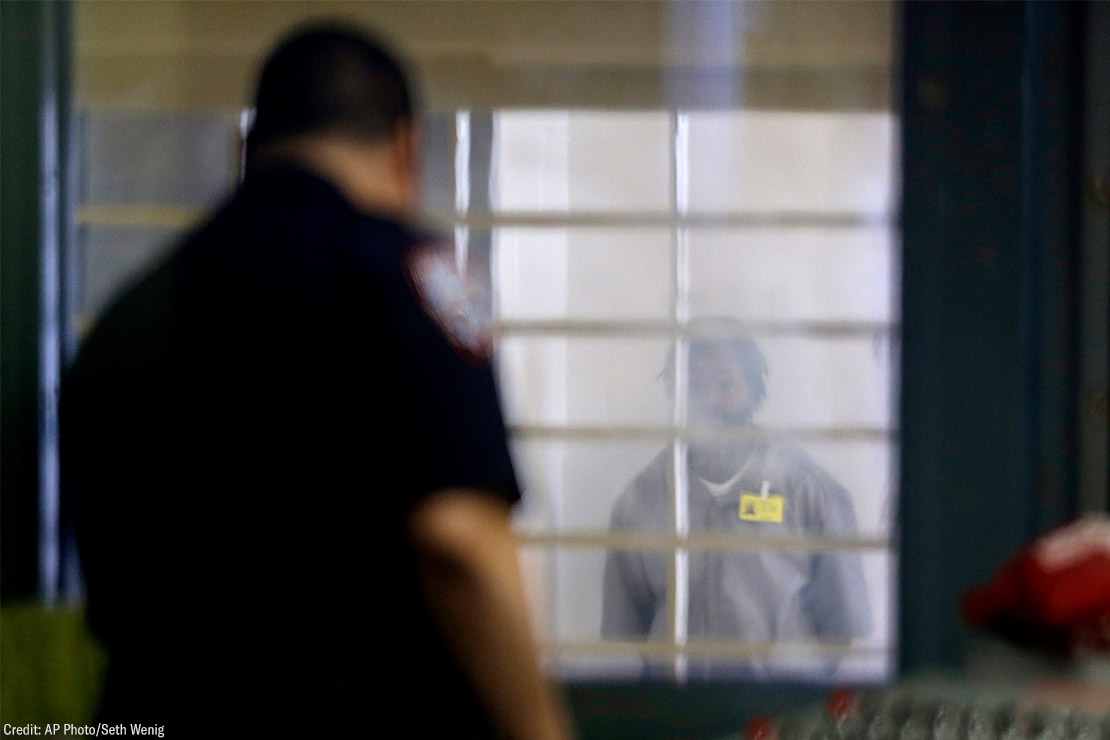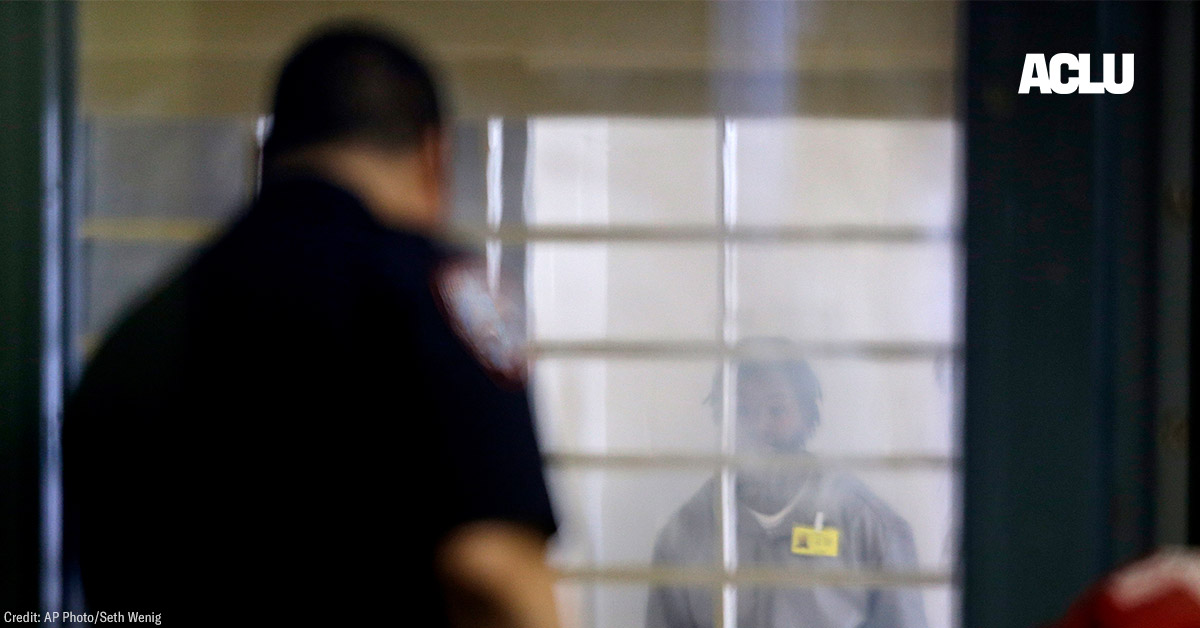March 18, 2020
Dear friends,
A lot has changed since this newsletter went to print. We send our deepest wishes that you and your loved ones are staying safe and healthy.
While our physical office is temporarily closed, our staff is working hard from home to ensure a response to the novel coronavirus that is both effective and fair. In particular, we are providing guidance to our elected officials and other decisionmakers on how to develop responses that protect the populations most vulnerable to harm during times like these. You can read about these efforts and find other resources on our new webpage, aclumaine.org/covid.
While the legislature has closed, our work on these priority issues continues—and we will pick right back up where we left off when a new session is underway.
On a personal note, I have been reflecting on how fortunate we at the ACLU of Maine are to be able to continue to advocate for our community through these difficult times. We would not be here without your support. Thank you. Together, “we the people” will come out of this stronger than ever.
Please don’t hesitate to reach out if you have any questions.
With all my gratitude,
Alison
Updates From Augusta

Take action today – call your legislators today and tell them to vote YES on these pro-civil liberties bills:
LD 1421
People who have not been convicted of a crime and pose no flight risk or threat to public safety do not belong in jail, but are routinely detained because they cannot afford their freedom. One meaningful way to fix this unfair pretrial detention system is to reduce the use of cash bail and replace it with personal recognizance (PR) bail in most cases – which means individuals do not have to pay cash to be released before their trial.
LD 1421 will increase our reliance on PR bail by eliminating the use of cash bail for most people accused of the lowest-level misdemeanors. It will also require a judge or bail commissioner to consider important factors before imposing cash bail that could potentially keep someone in jail, like whether the defendant is a primary caregiver, whether the defendant has health care needs that would be better met in the community than in jail, or whether staying in jail would affect the defendant’s job.
LD 1492
Five decades of unjust and discriminatory drug policies have done irreparable harm to individuals, families, and communities – and have done nothing to reduce drug use. The harsh penalties and collateral consequences of our current drug policies make it harder for individuals and their families to obtain and keep housing, employment and other critical services necessary to thrive.
Because Maine laws don’t reflect how people use drugs, people are incorrectly labeled as traffickers and punished in ways that derail their chances for future security and success. LD 1492 will reduce unnecessary felony charges, so we can change this devastating pattern and stop doing irreparable harm to people and families.
LD 1684
Putting kids in prison does not address the underlying issues which led to their contact with the justice system in the first place. Investing in a community-based continuum of care is far better at equipping people with the skills they need to succeed in life. Yet Maine continues to lock up too many young people, for too long. Everyone – prosecutors, defense attorneys, children’s advocates, mental health professionals – agrees that Maine’s juvenile justice system is broken. LD 1684 will fix some of the biggest problems.
Learn more: aclumaineact.org.
Fighting for Our Kids
By Alison Beyea

Recently, many of our concerns were echoed in a report from the Center for Children’s Law and Policy, a national organization hired to do a deep dive into Maine’s system.
Among the Center’s top findings:
“The system still doesn’t work well for many youth and their families, particularly youth with serious behavioral health problems, immigrant youth, African American youth, LGBTQ+ youth, tribal youth, and youth with disabilities.” -Center for Children’s Law and Policy Report
- Most youth detained at Maine’s youth prison, Long Creek, are there because there is nowhere else for them to go, due to a lack of community-based alternatives and long waitlists for programs.
- In some cases, Department of Corrections staff and judges said they detained youth even though detention was not appropriate because there were no other available options.
- Over 70 percent of kids at Long Creek were designated low or moderate risk (vs. high or very high).
- In half of detention cases, youth were held for fewer than three days – suggesting they never posed a threat to public safety.
- Significant numbers of youth are detained longer than 30 days, even though they are designated low or medium risk youth. Youth assessed as low or moderate risk have longer average lengths of stay than “high risk” youth.
I sit on the Maine Juvenile Justice Task Force, which is reviewing the Center report and will make recommendations to the state to fix these urgent problems. I will be pushing my colleagues to make real and significant reforms.
In the meantime, we have an opportunity in the legislature to address some of the most pressing needs of young people in our juvenile justice system now. The ACLU of Maine is supporting two bills to do just that.

First, it would keep our youngest children out of the system. Right now, children of any age can be treated as criminals. This bill raises the age at which children can be involved in the system to 12.
Second, it would repeal mandatory minimum sentences. Right now, Maine requires that children committed to Long Creek be held for a minimum of one year. This bill ends that requirement so that children won’t languish in prison.
Finally, it would guarantee access to attorneys. Unlike adults, after children are committed to Long Creek they lose access to their court-appointed lawyers. This bill would restore access to that crucial support.
Another bill moving in the legislature, LD 1964, would make it easier for system-involved young people to get the support they need and find success by protecting the privacy of most juvenile criminal records. Too often, criminal records follow young people, stigmatizing them and making it harder for them to grow and thrive.
We support both of these bills because they expand youth rights and help us move toward a society where young people get help and support over punishment and incarceration. Join us in telling legislators to vote YES on LDs 1684 and 1964.
Canvassing for Rights for All

To learn more about this campaign and read candidates’ answers to the ACLU questionnaire, visit RightsForAll.org.
On February 1, 10 amazing volunteers from Maine hopped on a bus to join other ACLU volunteers for a Day of Action in New Hampshire. The team knocked on doors and spoke to hundreds of potential voters, educating them on candidates’ positions on key civil liberties issues that persist regardless of who is in the White House – from racial justice, to criminal legal reform, to reproductive freedom, to economic justice and beyond.
Save the Date!
We the People
Are What Democracy Looks Like
ACLU of Maine Annual Celebration
Featuring: Sophia Lin Laken, Deputy Director of the ACLU’s National Voting Rights Project
Thursday, September 17, 2020
Stay tuned for more information this spring.
Tickets on sale May 2020.

